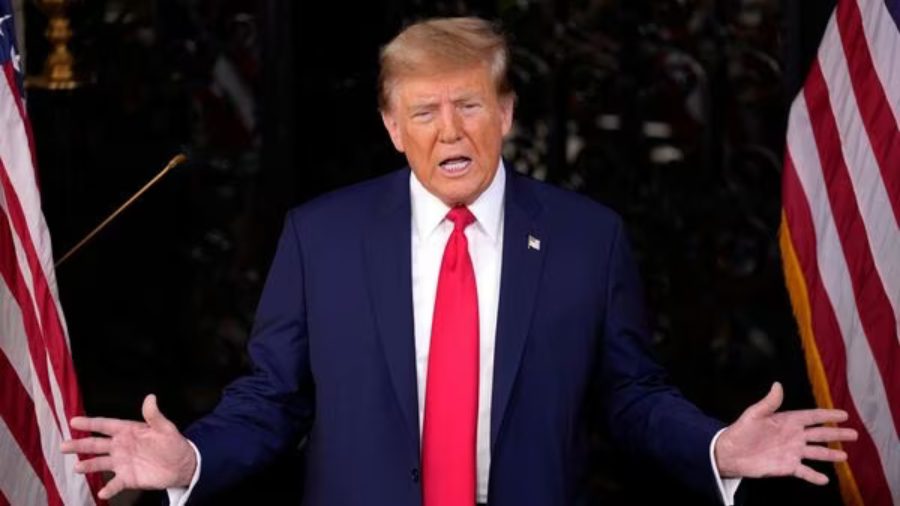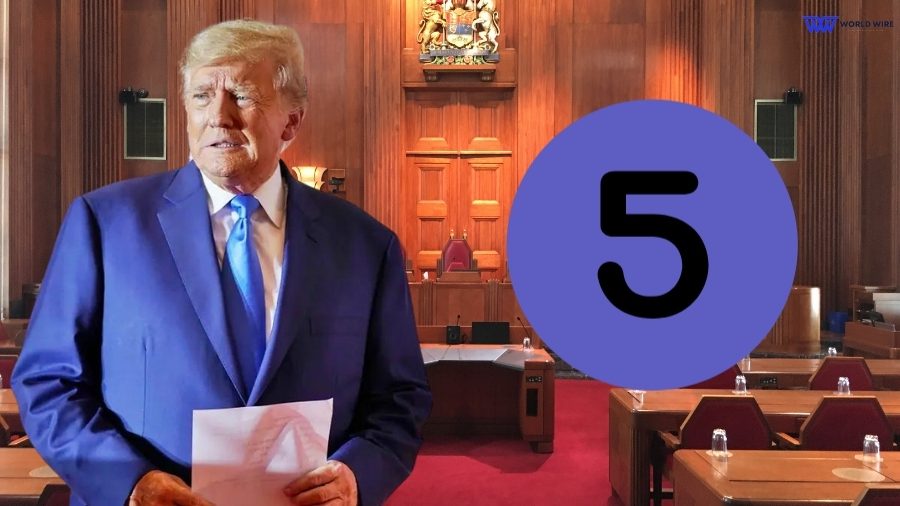The Colorado Supreme Court ruled that Trump is disqualified as he incited the mob that rioted at the US Capitol on January 6, 2021. The judges debated this main point on Thursday.
Let’s read the news and find out more.
Trump’s Supreme Court Appeal for Colorado Ballot: 5 Key Arguments
Does the former president Donald Trump fall under the anti-insurrection provision of the 14th Amendment? The 14th Amendment, adopted following the Civil War, prohibits persons who have participated in an insurrection after having pledged to protect the Constitution plays a key element in the case.
The Clause reads: “No person shall be a Senator or Representative in Congress, or elector of President and Vice-President, or hold any office, civil or military, under the United States, or under any State, who, having previously taken an oath, as a member of Congress, or as an officer of the United States, or as a member of any State legislature, or as an executive or judicial officer of any State, to support the Constitution of the United States, shall have engaged in insurrection or rebellion against the same, or given aid or comfort to the enemies thereof. But Congress may, by a vote of two-thirds of each House, remove such disability.”
As Trump’s attorneys claim and argue on whether “officer of the United States” is a term that refers to appointed officials in the Constitution, or does it refer to anyone holding a federal position? The answer to that question by the Supreme Court is what might determine whether or not former President Donald Trump is allowed to run for office.
Trump has given Five justifications to allow him to participate in the ballot. Four of the five justifications offered to the judges go beyond the Colorado case.
If the judges reject most of the arguments, then depending on each state’s election laws, other states might also be free to remove him from the ballot, eventually leading to “chaos and bedlam,” as Trump’s attorneys claim.
So what are those five key arguments produced, and why have they been rejected by the other end? Let’s take a look!
The president is not an “officer of the United States.”
Trump’s first argument states that Section 3 of the 14th Amendment does not apply to him. Despite serving as president, Trump’s attorneys assert he is not an “officer of the United States.”
The argument was further backed by stating that unlike members of Congress and others, Trump did not swear to “support” the Constitution when he took office.
Furthermore, they press on the point that the president should be mentioned in Section 3, although it lists other government roles like senators and representatives.
They also took a strong stance, stating that if the drafters of the Amendment had intended for the president to be covered by that section, why didn’t they include referring to the position?
The other side of the argument asserts that it is illogical to believe that the authors of the Amendment intended to shield the Constitution from all oath-breaking insurrectionists.
Attorneys representing Colorado voters contend that anyone holding a federal posting is naturally considered an “officer of the United States.”
Also, read “Court Says Trump Can Be Charged for 2020 Election Case.”

Trump had no participation in the insurrection
The second justification provided by Trump’s attorney is that he didn’t ask his supporters to enter the Capitol and that he didn’t “lead, direct, or encourage any of the unlawful acts that occurred at the Capitol.”
Trump argued to the Supreme Court to keep him on the ballot, claiming that ‘There was no insurrection’ while the other side contended that Trump was incorrect to claim he hadn’t “engaged in” insurrection.
Congress to decide how Section 3 can be enforced
Trump’s third argument is that the 14th Amendment allows Congress rather than state legislatures or officials to impose the ban.
The counterpart argues that the Constitution grants states the authority to restrict presidential candidates to those qualified to serve in that capacity.
Also, read “Three Republicans Voted Against Impeaching Mayorkas“
Section 3 prohibits someone from holding office, not running for office
The fourth argument is that the Amendment only restricts the oath breaker insurrectionist from holding an office and not against running for office.
The Amendment also allows Congress to remove a candidate’s disqualification before the term starts, with a two-thirds majority in each chamber.
This indicates a candidate may still be eligible at the time of inauguration even if they are disqualified at the time of election.
Trump contends that Congress will ultimately decide whether the Clause should prevent him or not from entering public office.
Attorneys for the Colorado voters dispute that delaying the determination of Trump’s eligibility until after tens of millions of Americans have cast ballots would lead to a disastrous constitutional crisis.
Also, read “Mayorkas Survives House Impeachment Vote.”
Colorado law doesn’t allow the state to order Trump’s removal
Trump insists that state courts may only become involved in ballot disputes to fix or prevent errors according to Colorado’s election laws.
At the same time, Trump’s attorneys argue that Section 3 only applies to officeholders, not candidates.
The counterpart asserts that states have significant authority to oversee presidential elections and can disqualify candidates who lack eligibility as per the Constitution and that Section 3 applies to Trump.







Add Comment